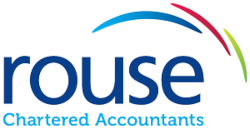Allow enough time to complete your P11D’s
We are reminding employers that the process of gathering the necessary information can take some time, so it is important that this process is not left to the last minute.
For your information, the deadlines and penalties are as follows:
- 6 July 2022 – All forms P11D(b) and P11D must be submitted to HM Revenue Customs (HMRC) by this date. A penalty of £100 per month (or part month) per 50 (or up to 50) employees can be charged for late submission of the forms P11D(b). A further penalty of £300 plus £60 daily per form until submission can be charged for late forms P11D.
- 6 July 2022 – All employees/directors must be provided with a copy of their form P11D, if applicable.
- 19 July 2022 (22 July if electronic) – Any Class 1A National Insurance liability must be paid by this date to avoid interest charges. In addition, employers may face a penalty of 5% of the amount paid if it has not been paid in full within 30 days of the due date of payment.
Which expenses must be reported via P11D’s?
P11D forms are designed to report the benefits to employees where tax must be paid. This is generally settled via a PAYE coding notice adjustment or through the self assessment system. The types of benefits that can be reported via P11Ds include:
- Assets transferred to your staff at no cost or below market value e.g. Personal items paid for using company cheques/credit cards and cash not refunded to company;
- Personal payments made from the business e.g. paying personal bills from company account or credit card;
- Assets placed at your staffs disposal, eg motorcycles, holiday homes;
- Mileage Allowance amounts in excess of the HMRC approved rates;
- Cars, vans and/or fuel provided by the company and available for private use (in the case of vans incidental private use can be ignored);
- Telephones and mobile phones, unless the calls are 100% business use (line rental is still taxable) or the contracts are in the company’s name;
- Vouchers, such as qualifying childcare vouchers;
- Living accommodation i.e the cash value of the living accommodation provided;
- Low or interest free loans, often referred to as director’s loans;
- Private medical or dental insurance paid for by the business;
- Professional fees and subscriptions, however some subscriptions to professional bodies may be exempt;
- Training, however work related training is allowable and only if paid for or reimbursed by the company.
P11D vs ‘payrolling’ benefits: Which should I choose?
Employers are able to forgo preparing P11D’s and opt to ‘payroll’ benefits. In this case the benefits do not need to be reported via forms P11D, though employers should advise employees of the amount of benefits payrolled.
The obvious benefits to employers are that there will be reduced admin and/or time for your accountant to prepare and submit your P11Ds at the end of the tax year. Whilst a P11D(b) must still be completed, overall there will inevitably be a time/cost saving when payrolling your employee benefits.
However, it is important to note that employers who provided living accommodation and interest free and low interest (beneficial) loans cannot be provided via payrolling. You must still report these benefits on a P11D, even if you’re payrolling other benefits for the same employees.
By moving to payrolling benefits, your employees will notice a small increase in tax in the first year, as they will pay tax on their earnings, and a ‘catch-up’ for the prior year based on the submitted P11D, and this should be included in your team communications.
Please contact us if you would like to discuss whether payrolling benefits will be advantageous for your business.
Settling your company Class 1A NIC’s liability
In addition, regardless of whether the benefits are being reported via P11D or payrolled the employer must pay Class 1A National Insurance Contributions at 13.8% on the provision of most benefits. The calculation of this liability is detailed on the P11D(b) form. The deadline for payment of the Class 1A NIC is 19th July 2022 (or 22nd for cleared electronic payment).
Looking for a P11D service? Contact our P11D team
If you would like any help with the completion of your p11d forms or the calculation of the associated Class 1A NIC please get in touch with our experienced P11D team.

Ammad provides personal taxation planning, advisory and compliance services.


